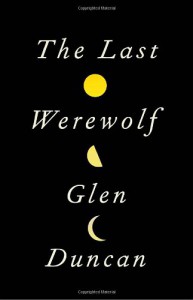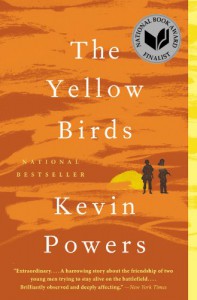Eliot Baker's Dozen
No One Can Hear You Scream

The book lingered with me largely because of the way it was written, which was simple and lean with zero exposition. You uncover the mystery of Teacher's and his fellow nameless survivors' identities as their memories emerge and as the action unfolds, often with the same shock and horror felt by them. The psychological aspects of the book have some Philip K. Dick in them, but this is all Bear. The emotional impact of this style of writing he chose is so suitable for the characters plight, and it is so visceral for the reader, but it's not for everyone. It requires some effort on the reader's part to balance the narrator's incomplete memory and understanding of his surroundings against what he is seeing. Imagine shoving a webcam through zero G's into an alien environment of battle, creation, and destruction, and then trying to untangle what's going on purely from what you see. That's sort of the reading experience here, and it's rewarding. So is the unravelling of characters' identities; the secret to their existence is profound and disquieting, but ultimately hopeful. Hard SciFi is generally not my thing, but Bear is a master, and this is a worthy read for anyone with even a hint of interest in space opera/survival horror.
What Big Writing Chops You Have!

The writing is almost too good. Duncan makes my head spin and unsettles me in a very unique way, his narrator being an erudite anti-hero whose tastes in culture and society are as high as his hungers for flesh and sex are base. I found myself reading over his sentences multiple times to savor their many layers, like a rich, rum-and-raspberry-infused chocolate cake. A cake you can't devour in one setting, but rather sample and chew on and wash down with sips of espresso.
There's a lot in here--philosophy, history, urban and social commentary, ruminations on love and friendship and existence and the ties that bind it all together. Oh yeah, and spicy werewolf sex and gory dismemberments and devourings. Jake Marlowe, the 200-year-old werewolf, shows us submerged aspects of our humanity by confessing to the desires and demands of his monstrosity. Much (most) of these primal drives are related to through sex, of the most unromantic kind. At times reading The Last Werewolf feels like watching porn narrated by George Plimpton. The sexual act, from desire to climax, is dismantled by the werewolf, held up to a bare light bulb, and then fastened dark-comically back together into something shaped like a reproductive organ doubling as a weapon. At times it's too much. But there's a reason for it. I won't say what it is. Just keep reading the book. Eventually you'll get it. All I'll say is it provides epic contrast, which yields a heart-breaking sympathy for a main character who, throughout most of the book, you're not entirely sure you want to live (other than the fact that those out to kill him seem even worse).
Glenn Duncan took a beating for his allegedly genre-elitist review of Colson Whitehead's zombie novel, Zone One, "the other" big-time-hit literary horror novel released in the last few years (unless you count Justin Cronin's, "The Passage" as literary, which I more or less do). I can see why. There's a reason he named his main character Marlowe, but he could have just as easily been named Milton (a major influence of Duncan's, supposedly) as grand Elizabethan thought on Heaven and Hell and all things between propels much of the narration. Some people seeking hot werwolf sex and delicious slaughter aren't looking for such things, and raise their hackles when a horror author shoves such things in their face. If you like literary writing, and don't mind it spilling into a dark, delicious tale, then read this (and Talulla Rising, the sequel, for that matter).
A modern war masterpiece

As for the story, I found it heart breaking and gripping and immediate and important. Like the military cadence the book is named after, these young boys are lured into war only to have their heads bashed in, literally and figuratively, and this account makes me realize why it's so unfair for a civilian to ask a veteran "What was it like over there?" It requires a work of high art to answer that question, and this novel provides it. While there is a story here, and it contains a well-concealed treasure of a secret, the only way to appreciate this novel is to enjoy the journey that takes you into the heart of this secret, and what it means. This is 40-year-old scotch to be sipped for pleasure, not Early Times to be slugged for getting wasted. This is indeed a work of art, not the type of thing that lends itself easily to imagining upon the silver screen. It is so sensual, the descriptions of people and scents and desert and bodies and sewage and lamb all coalesce until you feel like a ghost floating above the scene of war and homecoming.
If you appreciate amazing writing, read this. If you care about what's happening to the thousands of soldiers who've been broken by this war, read this. If you want to catch a glimpse of what this war would be like if circumstances conspired to put you there, read this.



